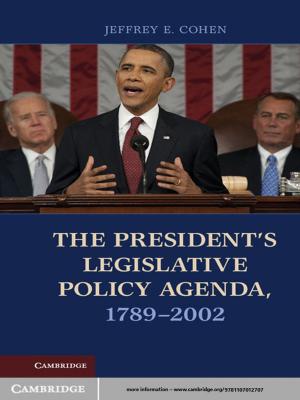Proconsuls
Delegated Political-Military Leadership from Rome to America Today
Nonfiction, Social & Cultural Studies, Political Science, International, International Relations, History| Author: | Carnes Lord | ISBN: | 9781139411370 |
| Publisher: | Cambridge University Press | Publication: | June 29, 2012 |
| Imprint: | Cambridge University Press | Language: | English |
| Author: | Carnes Lord |
| ISBN: | 9781139411370 |
| Publisher: | Cambridge University Press |
| Publication: | June 29, 2012 |
| Imprint: | Cambridge University Press |
| Language: | English |
This book is a study of proconsulship, a form of delegated political-military leadership historically associated with the governance of large empires. Opening with a conceptual and historical analysis of proconsulship as an aspect of imperial or quasi-imperial rule generally, it surveys its origins and development in the late Roman Republic and its manifestations in the British Empire. The main focus is proconsulship in American history. Beginning with the occupation of Cuba and the Philippines after the Spanish-American War, it discusses the role of General Douglas MacArthur in East Asia during and after World War II, the occupation of Germany (focusing on General Lucius Clay), and proconsular leadership during the Vietnam War and the occupation of Iraq and Afghanistan at the turn of the twenty-first century. An additional chapter provides an assessment of the evolution of American political-military command and control and decision making after the end of the Cold War.
This book is a study of proconsulship, a form of delegated political-military leadership historically associated with the governance of large empires. Opening with a conceptual and historical analysis of proconsulship as an aspect of imperial or quasi-imperial rule generally, it surveys its origins and development in the late Roman Republic and its manifestations in the British Empire. The main focus is proconsulship in American history. Beginning with the occupation of Cuba and the Philippines after the Spanish-American War, it discusses the role of General Douglas MacArthur in East Asia during and after World War II, the occupation of Germany (focusing on General Lucius Clay), and proconsular leadership during the Vietnam War and the occupation of Iraq and Afghanistan at the turn of the twenty-first century. An additional chapter provides an assessment of the evolution of American political-military command and control and decision making after the end of the Cold War.















